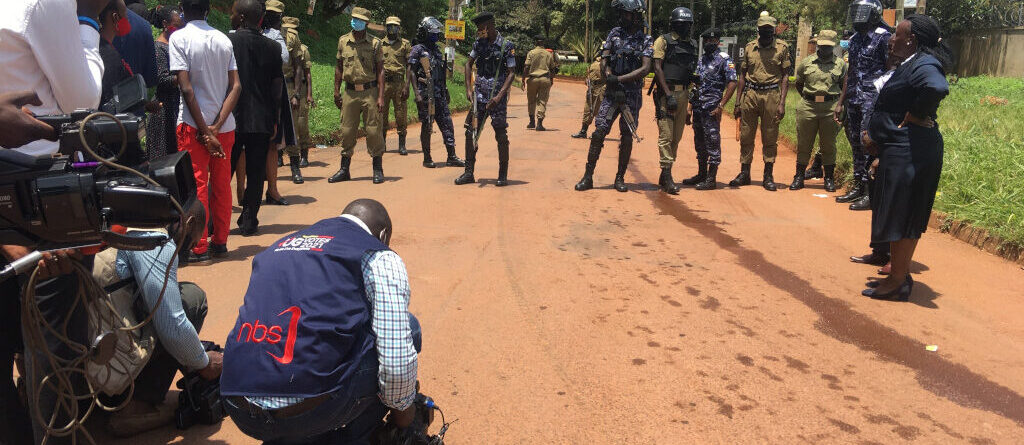
BY MORIS OGABA AND CONCY ACIRO
Ms Ajok is among the less than five multimedia journalists in Gulu. FEMJOF-Uganda plans to train more field female journalists to embrace multimedia journalism and explore creative ways of storytelling and personal branding to sustain themselves as competent and competitive professionals.
Due to the covid-19 pandemic, a significant number of field female journalists have been either laid off work or become freelancers with meagre pay that can hardly sustain their livelihoods.
The field female journalists operating in Omoro, Amuru and Nwoya districts of Northern Uganda say they have been left behind in skills training to compete for opportunities at both regional and national levels.
“If we could start by knowing what multimedia journalism is, that would be great. It would be suprising to you but most of us journalists do not know what it entails,” Ms Felista Auma, a journalist with Radio Pacis told FEMJOF-Uganda team.

By the end of the meeting, FEMJOF-Uganda appreciated better the circumstances under which field female journalists in Northern Uganda operate and the effects of Covid-19 on their practice.
Challenges emerged for the meeting ranging from inadequate skills in handling emotional challenges and low self-esteem, lack of skills in using some of the multimedia communication tools and equipment, inadequate techniques in identifying and writing competitive pitches and stories.
The field female journalists desire skills that can enable them tell stories that are relevant and would also contribute in changing the society using the information at hand.
Ms Juliet Oroma a field journalist with Gulu FM is concerned that whereas the numbers of female journalists in the newsrooms are few, push factors that keep them away from their career growth have not been adequately addressed.
“My emphasis is on online harassment in the newsroom which has become a new form of censorship in the media. Many people fear to open up. At the end, some women decide to become freelancers but we also deal with a lot of injustices, pain that does not go away,” Ms Oroma said.

The female journalists look forward to a day in the industry when they have equity in their work spaces and are treated fairly as their male counterparts.
They believe a collective approach by all stakeholders in the industry to give chance to this day should be encouraged and promoted.
Special interest should be placed on building the capacities of the few field female journalists in the industry to deepen their understanding, enable them access quality and relevant information to improve problem solving skills and increase their positive energy.


Thank you for opening up space where the female journalists can share their challenges and find solutions to them. Long live FEMJOF-UGANDA